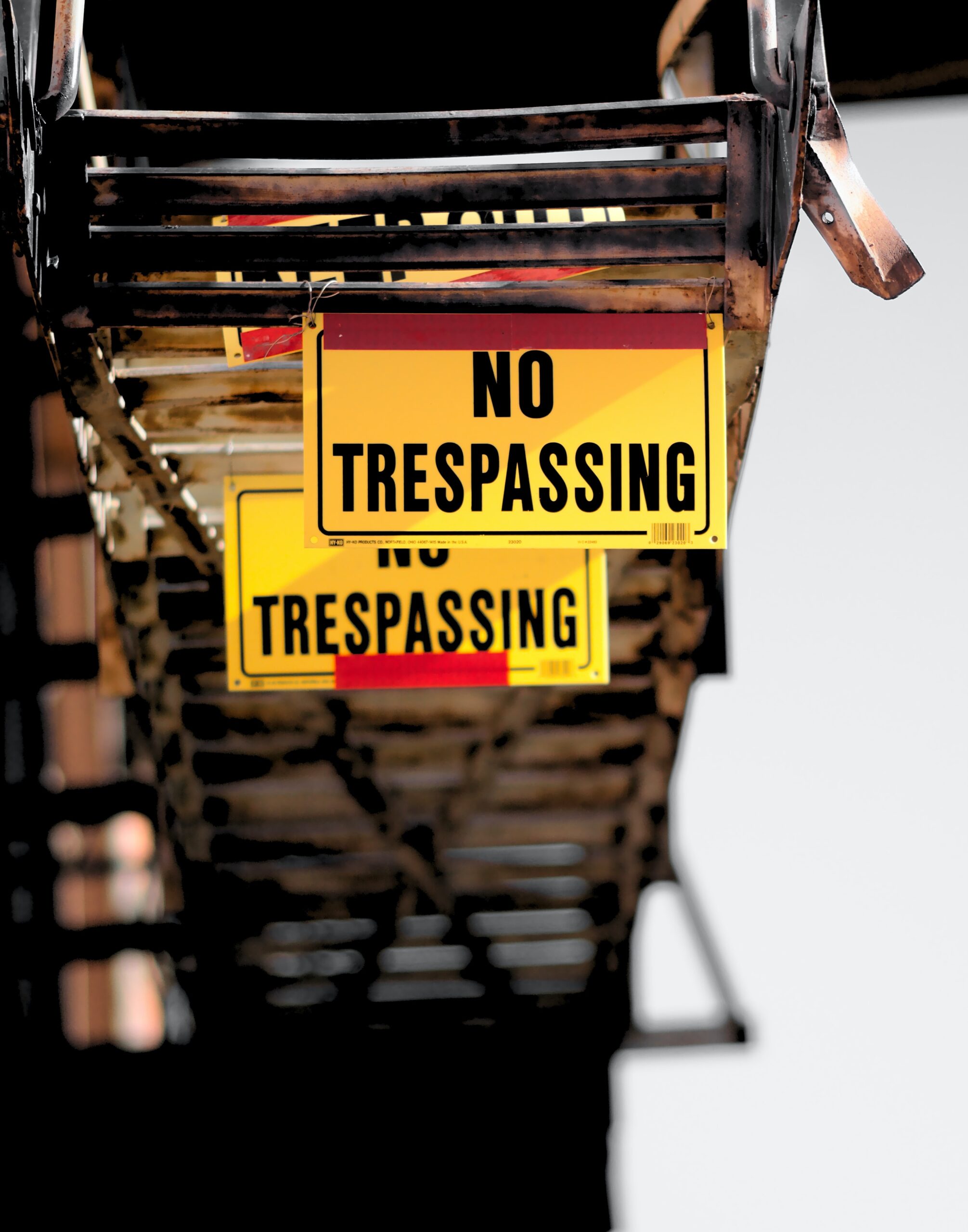An idea can affect culture or sub-culture in two ways: the overt way where people publicly embrace an ideology and the covert way where people accept the assumptions and beliefs of an ideology without formally embracing it. The latter works like yeast through the dough and leaven through the lump.
Many of us don’t even know the name of most of the ideas that shape (shaped us). We only find ourselves spewing rubbish like “it’s true for you, but it’s not true for me,” but we won’t call ourselves postmodern or relativists. Postmodernism shapes us without its paraphernalia.
The point here is that an idea can radically shape you even when you don’t know its name or you don’t accept the overall worldview/ideology where the particular idea springs from.
One of these worldviews/ideologies is feminism. While many believers will not describe themselves as feminists by a long stretch, they hold on to ideas rooted in the feminist ideology. So while feminism continues to shape us informally, we still decry it formally, like the political conservative who wants free healthcare for all but calls himself a capitalist.
I believe that the covert influence of feminism is worse than the overt’s. Just as the greatest threat to biblical Christianity is not those who outrightly deny the sufficiency of scriptures but those who formally believe it while in actual practice reject it, the greatest threat to the Christian family is the Trojan horse of feminism.
The problem
Over the years, I have heard many women “preachers” and marriage counselors give bad advice to women.
Perhaps you have heard some of them: “Focus on making your own money so you won’t be a liability to your husband;” “real women don’t depend on their husbands;” “don’t be a parasite;” “you need to be a strong and independent woman;” “men don’t marry liabilities (which is a reference to the woman’s financial capacity, etc.”
While some of these counsels are well-intentioned (trying to encourage women to be more supportive of their husbands), the effects are often baneful.
Taking the risk of an ad hominem
Before I highlight my concerns, here is the place to say a word or two about women “pastors.” I am doing this because a vast majority of the advice above (which I will evaluate in a bit) are given by women “pastors.”
While my primary concern is the advice themselves, it won’t hurt much to say a little bit about how we disobey God and his word by “calling” women to pastoral ministry in the first place. This is not to suppose that some men pastors don’t fall into the same error; instead, it is to point out one problem on the way to addressing another problem.
The rate at which Nigeria is producing women pastors, even in conservative churches, is worrying, to say the least.
The Bible is clear that men are to be the elders/pastors/bishops/shepherds of local churches. The overseer, Paul tells us, should be the “husband of but one wife” (1 Timothy 3:2). He should manage his own family well (verse 4-5). In his instructions to Titus, Paul, once again, emphasized that the elders of the church should be men- “husband of but one wife, a man whose children believe and are not open to the charge of being wild and disobedient” (Titus 1:6).
Paul forbids women from teaching or having authority over a man. Instead, they should learn in quietness, full submission, and in silence (1 Timothy 2:11-14).
While men and women are one in Christ through Christian baptism (Galatians 3:28), God has equipped us with different abilities and called us into different spheres of service. In his wisdom and love, he called (calls) the men to lead and pastor his church.
This is not an issue of capability, so to say. You might think you can grow the GDP of Nigeria’s economy by 30% every year if you were President, but if you are not called (through election) to that office, it matters little what you think about your capabilities. The issue here is not whether some women believe they can discharge a pastor’s office; the issue is whether God permits them (through his word) to do so.
Similarly, this is an issue about the sufficiency of Scriptures. Many women claim to have been called by God into pastoral ministry. But how will God call you to a position he already forbids for you in Scriptures? That only makes sense if Scriptures is not the final word on every matter. If Scriptures are not sufficient, then people can claim to have callings contrary to it, revelations that are the direct opposite of what the word says.
But many of us are uncomfortable with the Bible, and we do what we like nevertheless, like the days when Israel had no king and the people did whatever was good in their eyes (Judges 17:6).
But that is a matter for another day—enough of the ad hominem.

In what world does 1+1=1?
The Bible repeatedly teaches that marriage makes two people one. “For this reason a man will leave his father and mother and be united to his wife, and they will become one flesh” (Genesis 2:15). “So they are no longer two, but one” (Mathew 19:6). “Has not the Lord made them one? In flesh and spirit they are his. And why one? Because he was seeking godly offspring” (Malachi 3:15)
Paul was insistent that “in the Lord, however, woman is not independent of man, nor is man independent of woman” (1 Corinthians 11:11). “The wife’s body does not belong to her alone but also to her husband. In the same way, the husband’s body does not belong to him alone but also to his wife” (1 Corinthians 7:4). The man who loves his wife, loves himself (Ephesians 5:28).
When a man and a woman are joined in holy matrimony, they cease being two separate and independent bodies. They are united in body and spirit; their whole being is joined together. Consequently, they become one in everything.
When two people become one in such a sense, one can’t be a host and the other a parasite. For a parasitic relationship to hold, there must be two independent bodies, with one feeding on the helpless other.
But in marriage, everything the couple own, they own together. The man is not independent of the woman, vice versa. If the man is the breadwinner (as he should), he does not earn money for his independent self; he earns it for the family. The woman is as much the earner of the money as the one who goes out 8-4 to earn the paycheck. Just as the man has no sole claim on his body, he does not have a sole claim on his resources. In fact, the resources are as his as they are hers. The money does not belong to him or her but to them.
Marriage is a type of the relationship between Christ and the church (Ephesians 5:22-33). What happens in that marriage relationship between Christ and his beloved? When Christ married us, our sins became his property, and his righteousness became ours (2 Corinthians 5:21). There was no more distinction to be made. Christ is in us, and we are in him. We are united together with Christ, our husband, in a mystic, vital, and indissoluble union. You can’t think of the church apart from Christ unless you can think of the body apart from its head, vice versa.
The marriage of Christ to the church models for us what Christian marriages are to be. What belongs to the husband is now the wife’s, and what belongs to the wife is now the husband’s; they are no longer two but one.
The first error of the view that women should train themselves to be independent of their husbands is that it drives a wedge to the biblical mathematics by assuming a distinction in marriage that God does not condone.
The whole idea teaches women to think in terms of “him there” and “me here” rather than “us here and there.” Instead of the relationship between Christ and the church, where everything the couples have is now jointly held, these counselors and “pastors” divide what God has joined together (knowingly or unknowingly).
In a bid to encourage women to be productive, they overplay their cards, imbibing the feminist’s agenda of dividing up the home in the name of independence.
I admit that many men also fail to understand this. I will even argue that some of the above reactions are because of men who don’t live and make decisions as if they are one body with their wives. But the way to solve the problem of men failing to recognize this is to teach them and not import covert feminism to solve the problem. So I hope some men are reading this as well.
A woman is not a parasite to her husband whether she brings in income or not. Everything they earn (income) and own (assets), they do as one flesh. When money comes into the household, it is their money, and they both decide what to do with their money.
In God’s household, there is nothing like a host and parasite relationship determined by whether a woman earns income or not. The woman cannot be a liability just because she does not earn “her own” income. The woman does not beg for the husband’s money; it is their money, and as joint stewards of God’s resources, they decide together how to spend it.
If all the above seems impractical to you, remember I am writing for a Christian audience.

Does a woman need to bring money home?
All the above does not mean a woman cannot earn income. However, it does mean that if the woman does bring in income, it is not “her income;” like the husband’s, it is theirs. The woman is not trying to catch up with her husband’s paycheck (or even outdo him). If a man cannot hate his own body, can he compete with his own body? Can Usain Bolt run against himself or Real Madrid play against Real Madrid?
This independence debacle has led to some women buying and developing properties without their husbands’ knowledge. They are building their empire while he is building his. But for us Christians, we know better. There is only one empire- God’s- and man and woman come together to become one and jointly contribute to the building of that empire.
However, here is also the place to say that a woman does not have the responsibility (that is, it is not a compulsory requirement, a part of what it means to be feminine) to bring money home. Adam’s responsibility was to work the ground and work and take care of the Garden (Genesis 2:4-15). While God’s judgment on the woman was in the area of childbearing, the man’s was in his work (Genesis 3:16-19). The man who does not provide for his family is worse than an infidel (1 Timothy 5:18). The man is responsible for providing for his household.
The woman is responsible for managing the household (Titus 1:5, busy at home – NIV), which is one way they love their husbands and children (1:4). The woman gives birth to and nurtures children (1 Timothy 2:15) while providing a home the husband and children can delight in. The home is also where we entertain strangers and show all manner of good works (“opening her arm to the poor and extending her hands to the needy” – Proverbs 31:20) towards other people (Hebrews 13:1-2). The wise woman builds her house (Proverbs 14:1)
But in our materialistic world, home-building has been relegated to the second tier- if it is not making money, it is not making sense. We evaluate everything in monetary terms; we praise the lewd singer who makes millions and care less about the intellectuals seeking to provide solutions to problems in various facets of societal life. For us, money defines all things.
However, for believers who take the call to build godly, kingdom-expanding households seriously, the woman’s work in the house is as important as the work of the man outside. The woman who spends hours cooking for the children, reading to them, giving them a biblical education, sewing their clothes, preparing for a potluck in the church, among others, is doing a job that is as important as the man who is reconciling accounts in the bank. Why is it as important? Because God is building his kingdom through the woman making a home and the man reconciling accounts if they do it to God’s glory and with a view to his kingdom.
Once again, this does not mean a woman cannot do work that produces income. The quintessential virtuous woman of Proverbs 31 has a profitable trade (Proverbs 31:18). However, notice that her profitable trade was oriented towards her household. She was not trading to make a name for herself, be independent of her husband, pursue her own dreams, or avoid being a parasite. She does all of these in a way that her children could arise and call her blessed and her husband sing her praise (verse 28).
Every work she did was another thread in the tapestry of building a home where husband, children, and outsiders are blessed. She exceled in all she does because her orientation and motivation are well-aligned towards the primary responsibility God gave her.
Notice I used the word “excel.” It is not enough that a woman can bring in income and still do some household work here and there. No! This woman was not just “doing” work; she excelled in everything to the point that everyone praised her. People received genuine blessings from her home-building. The elders in the city saw the blessedness of the husband (verse 23) and respected him. She did her husband good all her days (verse 12), the needy were glad (verse 20), and the children delighted (verse 28). She was excelling.

A second problem
Seeds become plants; what we sow we reap. Ideas do have consequences, whatever the motives. Once we began to break up what God has joined together, we opened up a floodgate.
If women need to play catch up with their husbands so they won’t be parasites or liabilities, if they need to be independent and not “depend” on their husband’s income, then it makes sense that many of them will seek to “break free” from the life of the home and “go where the action is, where the money is being made.”
The Proverbs 31 woman could trade profitably in a way oriented towards making her home a blessing to all and sundry because she did not need to prove anything to anyone. She embraced her calling as a wife and woman instead of rebelling against it to avoid being a parasite.
Today, because the woman is so busy making money, we outsource everything. We outsource the kids’ care in their formative years to the daycares, the meal to the maid and restaurants, to name a few. Our homes can hardly be a blessing to the strangers and needy when we find it hard to derive blessings from them.
When children wake up today, there is no one to call blessed (Dad and Mum are stuck in early morning traffic somewhere). The home is no longer where everyone looks forward to; the office and the road are the new homes.
There is no glory in our households. It’s just the place where we watch movies at night and sleep. We do not see our households as the extension of God’s kingdom to produce other extensions.
I believe a big contribution to this is the pressure we put on women to make their own money and avoid being parasites. Who wants to a parasite? We have believed that a woman who makes a home is inferior to the woman stamping tellers in the bank. She is a liability, we think, who will depend upon her husband for money.
We stick the banker into the face of the home-maker enough that she loses courage and goes back to wading through the house looking for her certificate. The peer pressure looms large to the point that women who would have loved to be like the Proverbs 31 woman are discouraged. And people like that end up becoming worse than those who were never a big fan of this home-making thing, to begin with. I wish we remember what Jesus said about causing one of his little ones to stumble (Mark 9:42).
But when we seek independence in this area, it goes deeper. It’s a floodgate; it never stops with finances and all that. Very soon, the rot goes deeper, like cancer, it spreads to other areas. Soon husbands and wives are doing their own things. Distance and barriers come in and divorce or dissatisfaction follow from it. It only gets worse.
Am I saying there is never a place for a woman to work outside the home? Again, no. My point is that a woman who trades profitably as part of her way of blessing her husband, children, and the needy is different from a woman who trades profitably to make her income, stop being a parasite, and be independent.
The former is motivated by love towards others, the latter by peer pressure, selfishness, and self-centeredness. The former will trade profitably only to the extent where the husband, children, and the needy can still call her blessed. She won’t step out of that line since her work is oriented in that direction. She will be willing to cut back if needed. The latter will trade profitably as long as she keeps getting the “dough” and maintaining her independent status. The former is excelling in all she does; the only excellence the latter knows of is a rise in income or increase in assets.
When materialism is the driver, you can’t avoid falling into the ditches and potholes.
Home-making and laziness
Because we live in a world where climbing the corporate ladder and making money is the first and greatest commandment, there is an implicit assumption that women who don’t tread this path are the lazy bunch, the scum of the earth.
I admit that some women are lazy (just like some men are lazy), and staying at home is nothing but fuelling the fire of their laziness.
But those are not the kind of people I have in mind. We are Christians, remember. We are building God’s kingdom and bringing the nations of the earth to obey Christ. Because we have such noble work, making a home is different for a Christian woman than a pagan.
Building the kind of home that builds God’s kingdom is a serious business, as serious as the work of pastoring a church. When you read Proverbs 31, what is the first thing that comes to your mind? What a lazy woman that is? Why is she so indolent, she could spend her time in the city gate? No! What you see is industry, zeal, and grit; what you see is a woman devoted to building an extension of God’s kingdom where there is so much joy to go round.
When you understand your mission and have the godly creativity and innovation to dispense it, you will realize that godly home-making is joyful labor. It’s labor because it is real hard work. But it is the joyful kind of work, a work where God’s blessing resides.
Praise Her In The Gates: The Calling of Christian Motherhood by Nancy Wilson is a good place to start unfolding the dynamics and depth of this glorious kingdom-building work. When you understand what this work entails, you will understand how vital it is.
Conclusion
God is wise and good. He has created man and woman with unique attributes and strengths. Having done so, he has called us to different places of responsibility in life. He does this as part of his grace, his good and glorious grace.
He then calls the man and woman to become one, a union where none is independent of the other. For believers, it is a union patterned after Christ and the church. In this union, the two become one in everything.
When we begin to foster a spirit of independence, whatever might be our motives, we are putting asunder what God joined together. When we begin to encourage women to think of themselves as parasites and liabilities instead of seeing themselves and their husbands as one body, holding all things together in one, we foster a spirit of disguised rivalry, ungodly independence, and selfish ambition.
The result is that our homes become divided, with everyone trying to outdo the other. Women leave their primary estate to keep up with the Joneses, and everyone- the woman herself, the husband, the children, and the needy-suffer for it. Instead of a home where God builds his kingdom and where everyone is blessed and joyful, all we have is a hotel where people sleep and wake up (and eat if they can).
Sow the spirit of independence and watch the fruits manifest in folds.
We should teach our girls, ladies, and women to embrace their femininity and glorify the God who made them so for his good pleasures.





